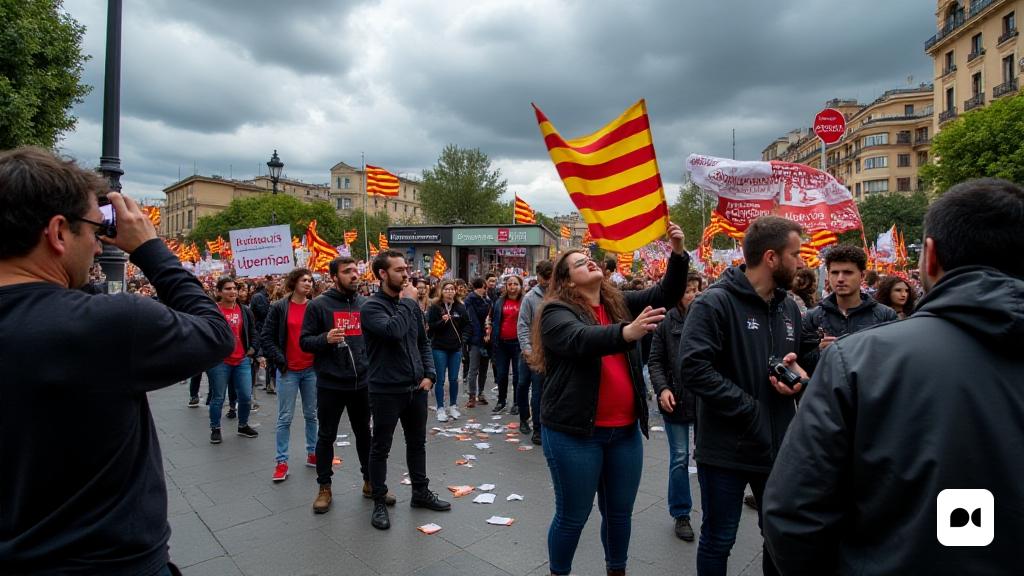Detentions that generate controversy
Last Saturday, the Mossos d’Esquadra detained three members of the Independentista Left, involved in a violent incident in January. The episode took place during an informative activity of the Catalan Alliance in Barcelona, which culminated in an aggression that caused the fall and subsequent fainting of one of its militants.
The role of the media
The media has dealt with the event with a language that has generated controversy. Instead of referring to the incident as aggression, terms such as ‘confrontation’ and ‘incidents’ have been used to dramatize the situation. This trend has been especially evident in the coverage of media such as Vilaweb and TV3, which avoided mentioning the severity of the consequences for the victim.
The CUP and its interpretation of the facts
Despite the seriousness of the incident, the CUP has presented this situation as a triumph in the fight against fascism. In a statement, they expressed their determination to continue fighting what they consider to be a threat to society, stating that it is crucial to develop strategies to deal with the repression that, according to them, is directed against those who fight for social rights.
The reaction of the Catalan victim and alliance
From the Catalan Alliance Party, they have claimed that the aggression actions are not unpunished. Sílvia Orriols, her spokesman, described the actions of the Totalitarian CUP and called for a reflection on the responsibility of politicians and media in the creation of a climate of tolerance for political violence.
Reflection on the current political climate
The polarization of political debate in Catalonia is evident in incidents like this, where narratives are distorted to adapt to particular interests. The tension between the different political factions not only affects the individuals involved, but also influences the public perception and the way the information is managed.
The future of Catalan politics
With an increasingly division scenario, it is essential that political actors and the media reflect on their responsibilities. The way the facts are presented can have a lasting impact on social cohesion and the legitimation of violence as a political tool.

